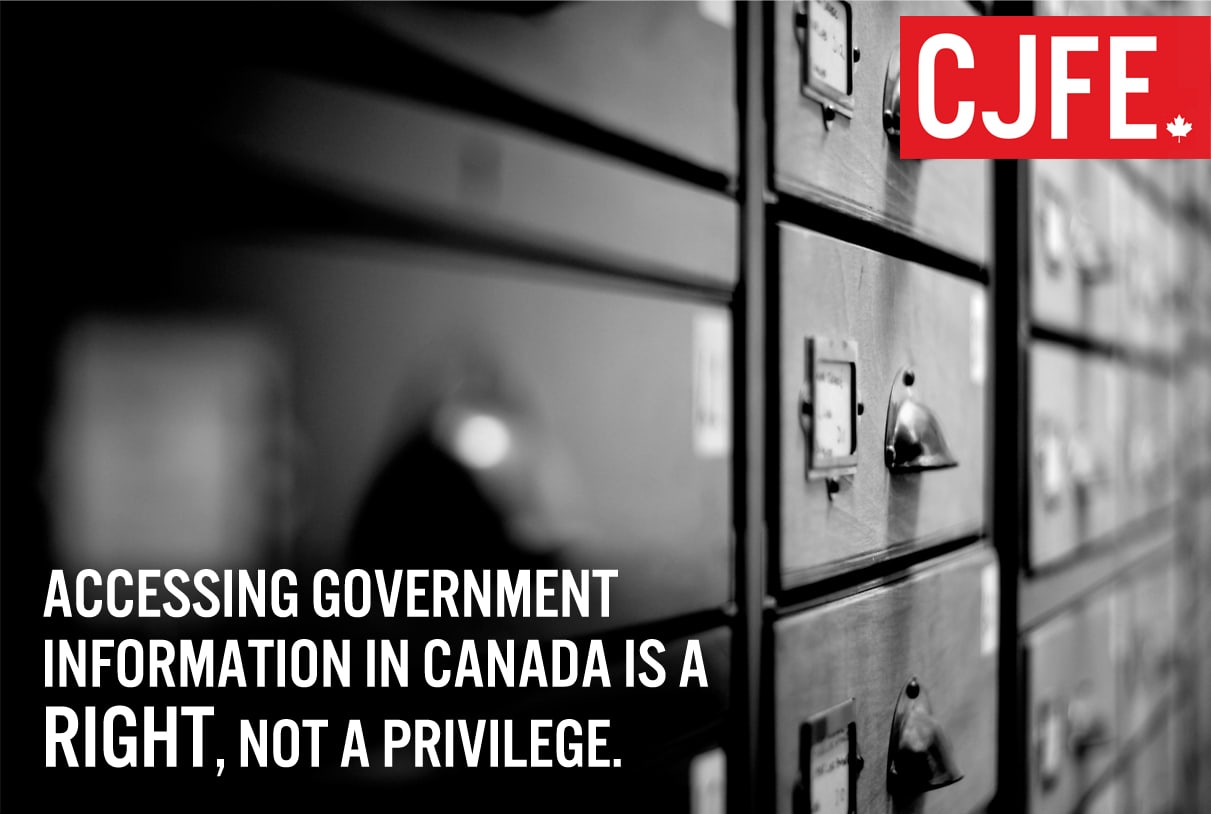Information and privacy commissioners from all 10 provinces, the three northern territories and the federal Office of the Information Commissioner have come together to propose the creation of a legislated duty to document that would apply to all public entities.
This statement was originally published on cjfe.org on 13 April 2016.
By Nathan Munn
The right of Canadian citizens to access information about what our government is doing is fundamental to our democracy. Without the ability to scrutinize the actions that elected officials are taking on our behalf, we are effectively shut out of policy decisions that have a direct impact on our lives. Whether we want to know how our politicians are addressing national issues such as infrastructure or health care, or want details about regional and local issues handled by the provinces and municipalities, unrestricted access to information is the single most important factor that ensures we as citizens can continue to make informed decisions about important issues.
In recent years, the number of complaints received by Canadian information commissioners about missing or nonexistent records at Canadian public institutions has been increasing dramatically. Individuals and organizations that request information from public entities routinely receive “no records” responses to their queries, raising concerns about transparency and accountability.
In a joint resolution issued on January 25, 2016, information and privacy commissioners from all 10 provinces, the three northern territories and the federal Office of the Information Commissioner came together to propose the creation of a legislated duty to document that would apply to all public entities. The resolution notes:
“The lack of a legislated duty to document continues to produce an accountability gap…. By not creating and retaining records, public entities can effectively avoid disclosure of documents and public scrutiny.”
This precisely identifies the problem: if public entities aren’t bound by legislation to document their activities and to preserve those records in a way that can be accessible to the public, record keeping is largely voluntary—an accountability grey area that can lead to the erosion of transparency or worse.
There have been other positive developments for access to information in Canada lately as well. The 2016 federal budget proposed several measures to improve Canadians’ access to both their personal information and government data, including the creation of an easy-to-use, centralized website that would allow Canadians to request information from any government institution, with a 30-day guarantee for responses to requests for personal information. Any delay beyond this 30-day period would require that the government provide a written explanation to both the requester and the Commissioner.
The federal government has also begun a consultation process to review and improve the federal Access to Information Act, an initiative for which CJFE has strongly advocated. Despite this welcome news, the review of the ATI Act isn’t slated to begin until 2018, leaving important concerns about transparency unaddressed in the meantime. Once the comprehensive review of the Act begins, CJFE will continue to push for meaningful reforms that will address the privacy and transparency concerns of Canadians and take into account the social, political and technological factors that influence our lives every day.
For anyone who has spent time navigating the bureaucratic processes of Canadian public institutions, it can be easy to forget that accessing government information in Canada is a right, not a privilege. The trend towards denying or avoiding public access requests is not only at odds with the law, but also with the spirit of accountability that is fundamental to our public institutions.
By calling for the creation of legislation that would require all public entities to keep full and accurate records of their deliberations and decisions, and explicitly advocating for the development of enforcement mechanisms to make sure that they do, our information and privacy commissioners are taking a bold and important step toward addressing the shortfalls of our current access to information regime.
Nathan Munn is an editor and content marketing specialist with Mediagrif Interactive Technologies. He lives in Montreal, Quebec.



